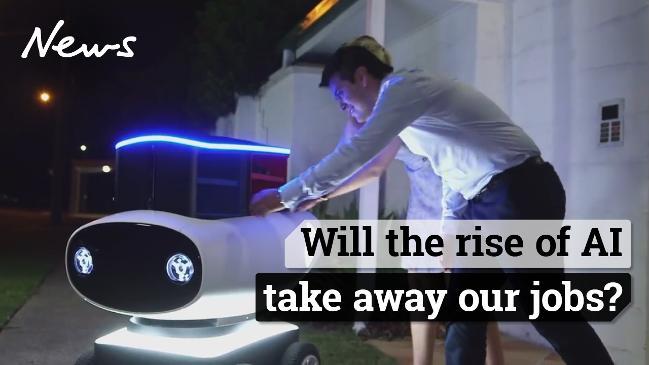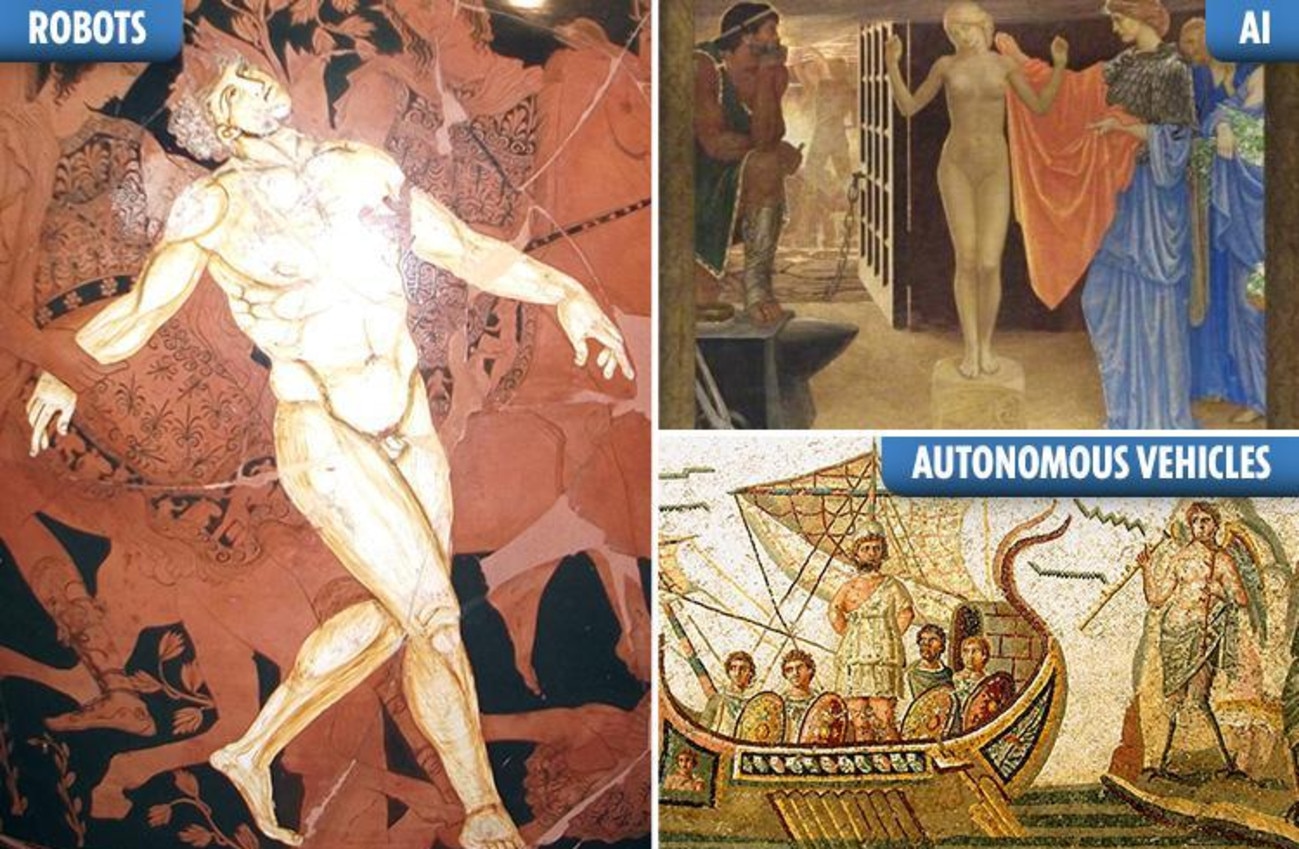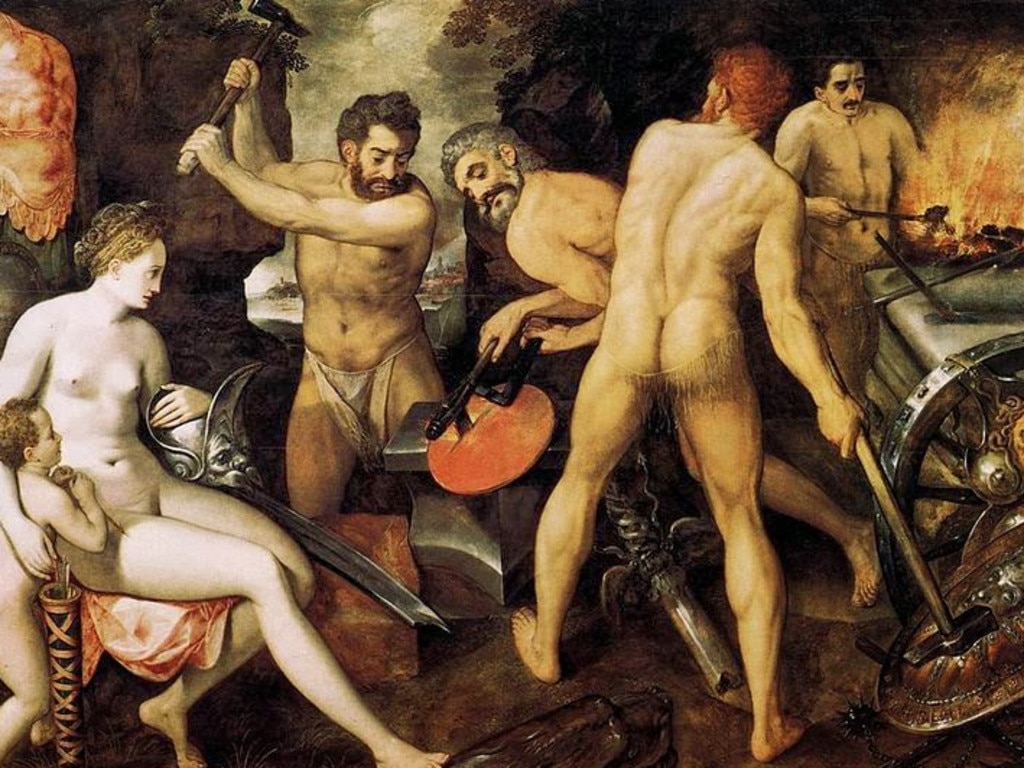How Ancient Greeks predicted killer robots, driverless cars and even smart speakers
A NEW book by a Stanford Historian claims that Greek myth predicted killer robots, AI assistants and other modern technology with eerie accuracy.

THE Ancient Greeks are celebrated for laying down the foundations of Western civilisation, but according to a new book they also had another, hidden talent: predicting future tech.
This is the remarkable claim made by Stanford University historian Dr Adrienne Mayor, who in the upcoming Gods and Robots argues that Greek myth prefigured artificial intelligence, robots, driverless cars, and other modern technologies.
As reported in UK’s The Times, Dr Mayor’s arguments revolve to a large extent around Hephaestus, the Greek god of craftsmen and metalworking.
One of his creations was Talos, a giant automaton made of bronze, who Mayor describes as a “bronze killer-robot” and an early precursor to the kinds of androids now being built by Boston Dynamics.
Another of his creations was Pandora, a “replicant” and “wicked AI fembot” who, according to Mayor, was ‘programmed’ to release evil into the world.
Pandora wasn’t the only ‘AI’ Hephaestus constructed, since he also built mechanical Golden Maidens to help him with his work.
These were designed to predict his needs and to act on them without direct instruction, something which Dr Mayor believes makes them early versions of such AI-powered personal assistants as Amazon’s Alexa.

And neither were these creations the only Ancient Greek prophecies of future tech.
According to Dr Mayor, Homer’s epic poetry foretells the arrival of driverless cars and transportation.
In The Odyssey, Odysseus sails back to Ithaca on pilot-less Phaeacian ships, while in The Illiad Homer writes about autonomous wheeled tripods that transport ambrosia.

Dr Mayor admits that the Ancient Greeks couldn’t possibly have come close to mapping out how modern AI would work on a technical level.
However, her book argues that this wouldn’t have prevented them from being able to imagine such tech on a more abstract level.
And more seriously, she believes that today’s tech companies could learn something important from the warnings laid down in Greek myth.
Because just as the “wicked AI fembot” Pandora ended up unleashing evil on humanity, so too could today’s AI if it’s not managed and understood well enough.
They certainly were ahead of their time.
This article originally appeared on The Sun and was reproduced with permission.



